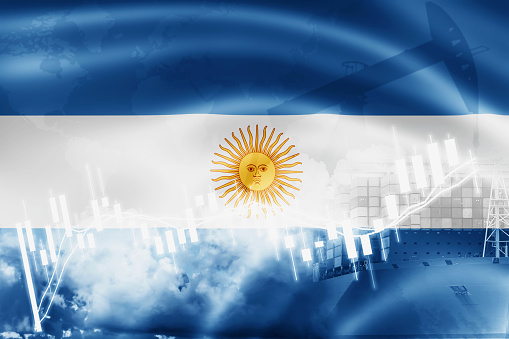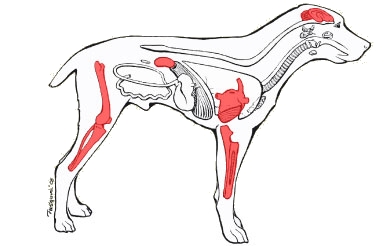The Argentine Economy and the IMF
The Argentine economy is dominated by manufacturing, which accounts for 15% of GDP. The manufacturing sector is closely integrated with the agricultural sector. In fact, almost half of industrial exports from Argentina come from agricultural products. Leading sectors by production value include food processing, refinery products, steel and aluminum, chemicals and pharmaceuticals, and motor vehicles and auto parts.
IMF’s diagnosis of conditions in argentina
The latest IMF analysis notes that Argentina faces significant debt problems and faces a tough transition out of recession. In February, the IMF said that Argentina’s public debt is “unsustainable.” The country’s interest payments have more than doubled their proportion of government revenue. It is also facing rising costs to refinance its debt.
As part of the program, the IMF will continue to monitor and oversee the country’s implementation. Periodic reviews will be conducted by the IMF, which will assess the progress of the programme. This year, Argentina’s government will reimpose capital controls on businesses and consumers. It will also impose higher import and export taxes. The uncertainty is still impacting the business climate.
Argentina’s fiscal and financial problems require restructuring. The country has become heavily indebted and its public companies have been forced into debt. In addition, it must address its debt and transition to a more productive model of production. This will require the involvement of transnational corporations in the process.
Argentina’s government’s economic priorities for the next three years are reestablishing investor confidence and continuing the post-pandemic economic recovery. The Fernandez administration has also taken the lead in promoting investment in the country. The government has not yet established a formal business roundtable, but it engages with domestic and foreign companies frequently. However, market regulations are increasing economic distortion and the investment climate.
Before the 1810 May Revolution, Argentina’s economy was controlled by a small group of peninsular merchants. The first government after the revolution pursued a protectionist policy. The government eventually fell. This was a difficult time for the Argentine economy. However, the country managed to avoid becoming a mono-product economy.
Argentina has made efforts to improve its investment climate, including easing bureaucratic hurdles. The country is a member of the OECD’s Inclusive Framework on Base Erosion and Profit Shifting (BEPS) and the October 2021 deal on a two-pillar solution to global tax challenges, which includes a global minimum corporate tax. Furthermore, Argentina has pledged to implement a global standard for automatic financial information exchange.
Although Argentina’s constitution recognizes the judiciary as a separate branch of government, the judicial system is subject to political interference. Many companies complain of inefficiency in the courts and lack of transparency. They prefer to settle their disputes outside of court and through private arbitration, as a result.
IMF’s conditionality
The relationship between Argentina and the IMF has simmered for some time now, but it has now reached a boiling point. The key issue is the repayment of the controversial loan disbursed between mid-2018 and mid-2019. Argentina has already paid back $3.8 billion of the principal, but it faces repayments of nearly USD19 billion by the end of the year. It has recently received $4.3 billion in electronic credits from the IMF, known as Special Drawing Rights (SDRs). These credits are convertible to any national currency, including the Argentine peso.
The Argentine situation poses a dilemma for the international financial community. In order to avoid a repeat of the past, the IMF might increase the level of conditionality in future lending. It would only lend to a country if its ambitious targets are met, ensuring that the government bites the bullet.
Argentina’s economic problems are longstanding and predate the IMF’s loan. Populist politicians have long meddled in the economy. In response to a surge in inflation, the government banned exports of beef and imposed price controls on more than 1,400 items. Furthermore, Argentina’s budgets have been distorted by sops to special interests. As a result, public sector employment has skyrocketed while private sector employment has shrunk. Moreover, Argentina’s utility subsidies amount to 1.5% of GDP.
After Argentina’s failures, the IMF may be tempted to try a different approach in the future. It may try to revive its credibility by implementing a new policy based on economic and political criteria. However, such a move would probably delay the process of new IMF lending. Instead, the IMF should focus on the human aspect of the crisis. If this is the case, Brazil might serve as a good test case.
The new IMF agreement with Argentina is only the beginning. While some people may wish for the old IMF policies, they would only deepen the divide between the advanced economies and the developing nations and undermine the credibility of the IMF. The process of rebuilding institutions will take time, but the new agreement will allow Argentina to address its challenges in a more expeditious fashion.
IMF’s financing decisions
IMF financing decisions for the Argentina economy have been controversial. Critics say that the IMF has failed to change the policy stance in the country. However, the IMF has hinted that they plan to make changes. In particular, they have said that the early restructuring of the debt would have helped reduce the burden of debt and also benefited the country’s economy. A quick restructuring would have freed up IMF money for other purposes, such as rebuilding confidence in the economy.
A recent assessment by IMF staff indicated that Argentina has not been able to meet its debt-service obligations this year. This left the IMF board with the difficult choice of whether to provide fresh funds to Argentina or allow the country to go into default. While this is a difficult decision for the IMF, it is possible for the IMF to apply a stricter conditionality.
If Argentina fails to agree to a sensible economic plan, it could default on its IMF loan. That would trigger a run on the Argentine peso and lead to an economic crisis and possible political instability. However, Argentina has repeatedly stressed that its loan repayment schedule is unsustainable.
The IMF’s financing decisions for Argentina’s economy are also complicated by the Argentine government’s need for approval from its legislature. The country’s government must also approve all programs before they can go into effect. Despite the IMF’s concerns, the Argentine government’s policymakers ultimately approved the emergency economic stabilization plan, which increased investor confidence and increased the government’s access to the voluntary capital market. The plan also reduced Argentina’s dependence on central bank financing. As a result, the Argentine government was able to refocus its resources on the economy and curb inflation.
The IMF has a long and contentious relationship with Argentina’s government. Its previous governments sought and agreed to a number of emergency financial-support programs for the country, most of which were short-lived and did not last longer than 24 months. Argentina’s economy has undergone decades of badly mismanagement and the previous governments failed to implement necessary reforms. Its political system lacks the bipartisan support to carry out critical reforms.
Top economic priorities for 2022
The country has high poverty rates and a high rate of forced labor. Its banking sector has been highly resilient despite the economic crisis. While the country is still heavily dependent on cash for basic needs, it is making strides toward digitizing payments to reduce costs and increase efficiency. There is also a high rate of sex trafficking, which is a major concern. Unfortunately, corruption and complicity by some officials have hampered efforts to fight it.
The current economic situation in Argentina has created uncertainty for investors. Unemployment has risen above 20 percent and inflation is running high. However, the country’s political and economic instability has also led to a drop in the currency value, which has been devalued by more than 50 percent in the past year. In addition, Argentina has not yet recovered fully from the recession, and its public debt level remains unsustainable.
The government has re-instituted capital controls, which are strict regulations on access to foreign exchange. The government has also increased import and export taxes, which is depressing the business climate. And the government has not ceased introducing new measures. But while the government aims to improve the business climate, there are still significant uncertainties that could undermine the country’s ability to compete in the global economy.
Although Argentina has a vibrant democracy and multiparty system, the country faces many challenges, including corruption and drug-related violence. In the last legislative elections, the center-right Together for Change (JxC) bloc did well, and was able to win more seats than the ruling Front for Everyone (FdT) bloc. However, the FdT also maintains a majority in the upper house of parliament.
The country is also working on addressing the growing concerns of the world over energy security. It is now working on a climate strategy titled the National Plan for Adaptation and Mitigation. This action will support the Paris Agreement’s goal of reducing greenhouse gas emissions. In addition, the country is planning to decarbonize the oceans and bolster its energy security.
Foreign investors in Argentina must be able to compete on equal terms with local investors. The country’s Constitution sets out the general principle that foreign investors have the same rights as local investors. In addition, foreign investors should be able to access international and domestic financing in the country without being subject to restrictions.



